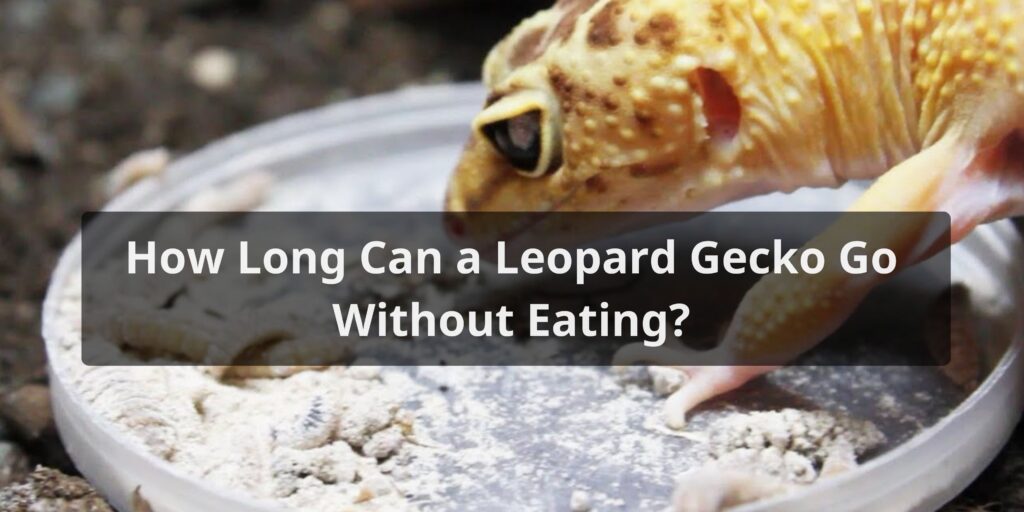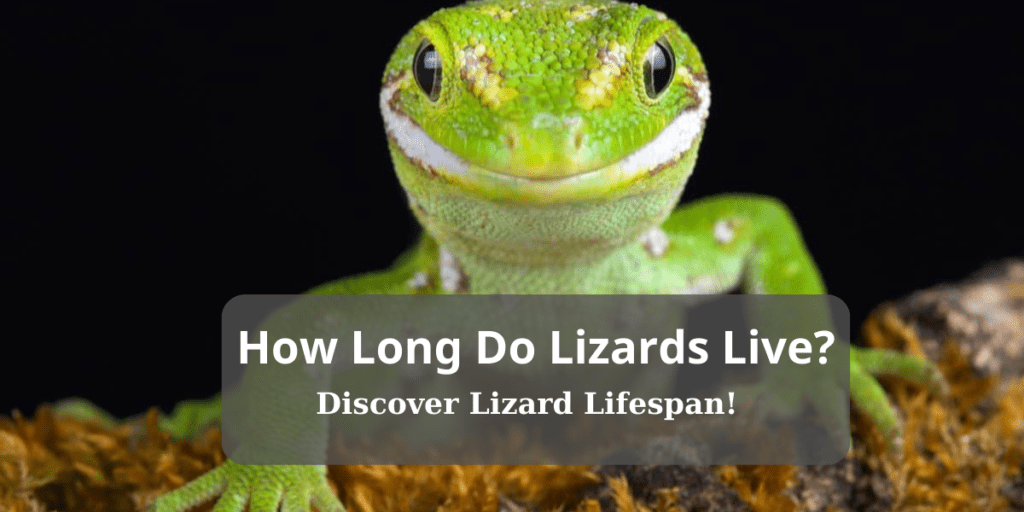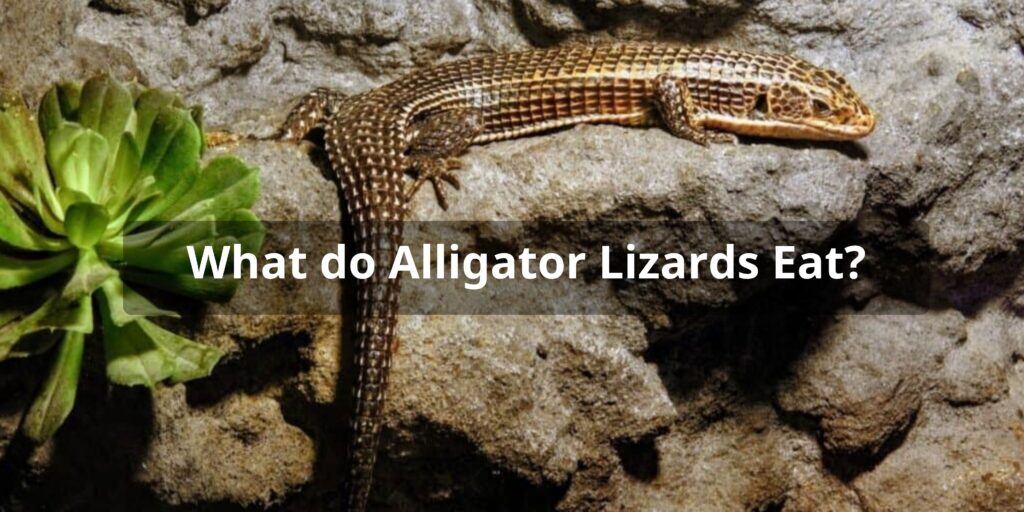Leopard geckos are common pet reptiles that originate from arid regions of Asia and parts of the Middle East. As cold-blooded animals, their metabolisms and nutritional needs differ in key ways from traditional mammalian pets like cats and dogs. Understanding the unique dietary requirements of leopard geckos is vital for keeping them healthy and thriving in captivity. This includes knowing how long can a leopard gecko go without eating.
Normal Feeding Habits and Requirements
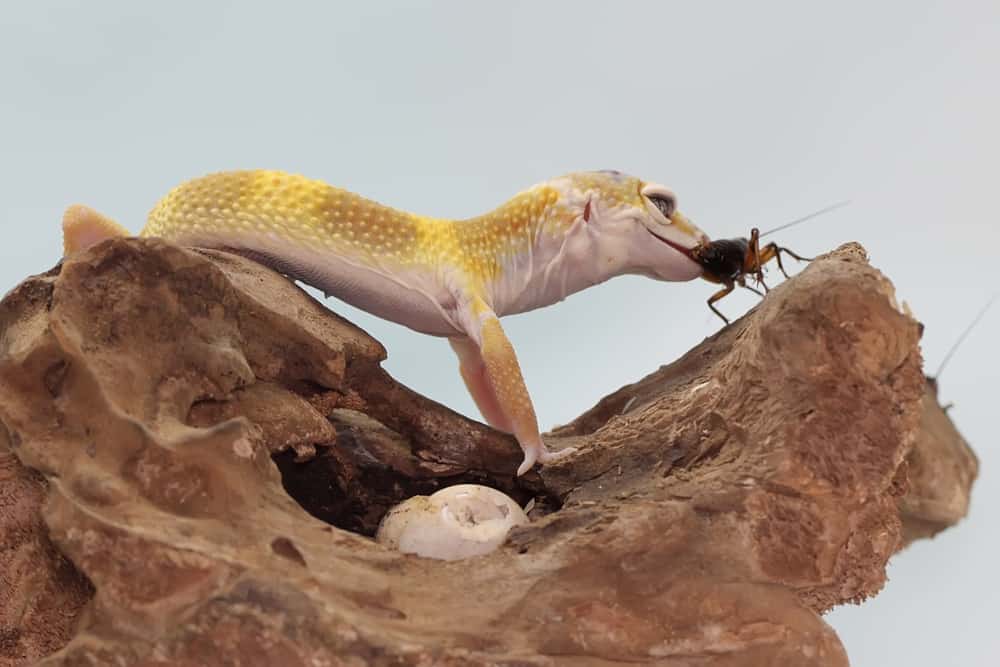
In their native habitats, leopard geckos are opportunistic insectivores that feed mainly on crickets, mealworms, and other small invertebrates. They have relatively slow metabolisms compared to warm-blooded pets. An adult leopard gecko’s normal feeding regimen in captivity consists of:
- Feeding 3-4 times per week for young geckos under 1 year old
- Feeding 2-3 times per week for adults 1-3 years old
- Feeding 1-2 times per week for mature adults over 3 years old
When fed an appropriate diet, adult leopard geckos only need to consume around 4-6 large feeder insects per sitting to meet their nutritional requirements. Younger, growing geckos require more frequent feedings with higher quantities of feeders.
How Long Can Leopard Geckos Go Without Food?
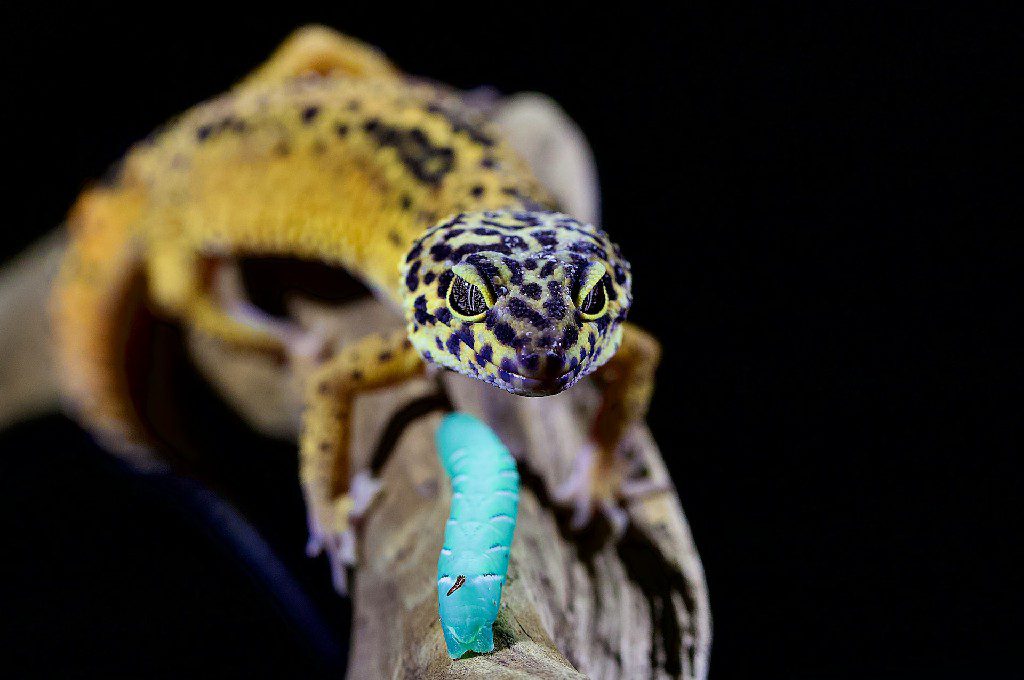
In their natural habitat, leopard geckos can survive extended periods without food when prey is scarce. They have adapted metabolism and behaviors to handle periodic fasting. However, pet leopard geckos should not be intentionally deprived of food for long stretches.
Here are some general guidelines on how long leopard geckos can safely go without eating:
- Hatchlings (under 6 months) – No more than 3-4 days maximum. Young geckos are still growing and require very frequent feeding. Prolonged periods without food can be dangerous and lead to health issues.
- Juveniles (6-12 months) – 5-7 days maximum. Juvenile leopard geckos’ growth rates start to slow but they still require relatively frequent meals and are sensitive to extended fasting.
- Adults (1-3 years) – 7-10 days maximum for a healthy adult. Mature geckos can withstand slightly longer spans between meals but should not exceed 10 days without food.
- Seniors (over 3 years) – 5-7 days maximum. Older leopard geckos’ metabolism and fat storage declines with age. Extended fasting can be taxing and dangerous.
These timespans are absolute maximums assuming the gecko is healthy and not losing excessive weight. In reality, any leopard gecko regardless of age should not intentionally be deprived of food for longer than 1 week at the very most. Going 2 weeks or longer without eating can lead to dangerous health consequences.
Signs Your Gecko Needs to Eat

Don’t rely on time alone to judge if your leopard gecko is overdue for a meal. Look for these signs that indicate your gecko should be fed again soon:
- Increased hunting/feeding response when prey items are introduced
- Unusually aggressive behavior, particularly around feeding time
- Listlessness, lethargy, decreased activity levels
- Visible loss of weight, sunken abdomen or eyes
- Difficulty shedding skin
Any of these can signal that your gecko has depleted fat and nutrient reserves. Offer food again as soon as possible if you observe these behaviors or changes.
Dangers of Prolonged Fasting
There are a few key reasons why leopard geckos should not go extended periods without eating:
- Hepatic Lipidosis – Prolonged fasting causes fat to accumulate in the liver, leading to this dangerous and potentially fatal condition. Geckos are especially prone compared to other reptiles.
- Muscle Wasting – Nutrient deprivation causes the breakdown of muscle over time. This muscle loss eventually weakens the gecko’s health.
- Compromised Immune System – Reptiles require adequate nutrition to maintain proper immune function and fight off pathogens or infection.
- Loss of Bone Density – Lack of calcium and nutrients can lead to metabolic bone disease and fragile, easily broken bones.
A healthy leopard gecko’s feeding routine should provide periods of fasting between meals, but extended food deprivation can quickly jeopardize their health and well-being. Monitor your gecko closely and look for any worrying signs like those described above.
Should You Actively Fast Your Gecko?
Some reptile keepers advocate occasional fasting periods to give the gecko’s digestive system a rest. However, most experts advise against actively depriving healthy leopard geckos of food outside of normal off-days between scheduled feedings.
Extended forced fasting risks the dangers described above and provides little measurable benefit. Leopard geckos are evolved to handle short spans between meals. Allow them to fast naturally between their regular feeding schedule instead of enforced fasting.
If your gecko is refusing to eat for an abnormally long time beyond the maximum limits listed earlier, consult an exotic vet to identify and address any potential underlying health issues. Do not assume your gecko is fasting voluntarily or attempting to self-regulate their diet during prolonged anorexia.
Conclusion
The unique physiology of leopard geckos means they can withstand reasonably long periods without food compared to traditional pets. However, they should not be deprived of nutrition beyond 5-10 days maximum depending on age. Exceeding this risks organ damage, muscle wasting, and serious health complications. Monitor your gecko’s behavior closely and watch for signs they need to be fed again soon. With proper care and feeding, leopard geckos can thrive for many years as captivating pets.
FAQs About How Long Can A Leopard Gecko Go Without Eating
How long can a leopard gecko survive without eating?
Leopard geckos can survive for several weeks to even a few months without eating, provided they are in good health and have access to water. However, it’s essential to address the underlying cause of their appetite loss promptly.
Is it normal for leopard geckos to skip meals occasionally?
Yes, it’s normal for leopard geckos to occasionally skip meals. They may do so due to factors like natural fasting periods, changes in seasons, or minor stress. However, consistent and prolonged appetite loss should be investigated as it could indicate health issues.
Can stress or changes in the environment cause appetite loss?
Yes, stress or significant changes in the environment can cause appetite loss in leopard geckos. Factors like relocation, new cage mates, or alterations in their habitat can lead to temporary fasting. Reducing stressors and maintaining a stable environment can help normalize their eating habits.
What factors affect the duration a gecko can go without food?
The duration a gecko can go without food can be influenced by its age, overall health, and fat reserves. Juveniles typically have less stored fat and may fast for shorter periods. Healthy adults can endure longer fasting periods due to their energy reserves.
How do age and health influence a gecko’s ability to fast?
Age and health play significant roles in a gecko’s fasting ability. Juveniles have higher metabolic rates and may require more frequent meals. Older geckos with good health and body condition can sustain longer fasts. However, underlying health issues can weaken their fasting tolerance, making regular feeding crucial for their well-being.

